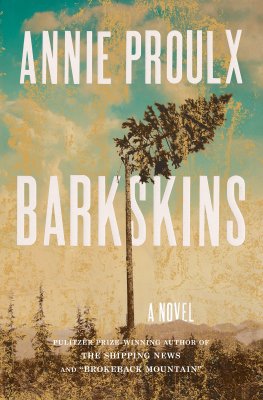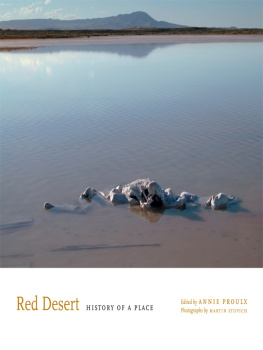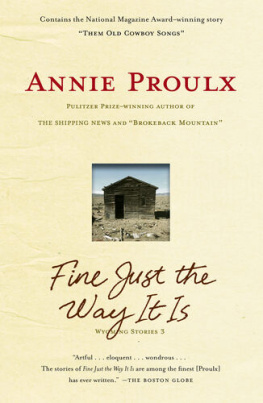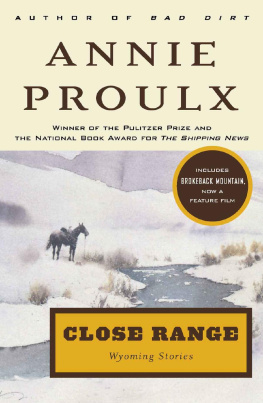To the memory of my high school teacher Elizabeth Ring, Maine historian, scholar and educator, who excited in me a lifelong interest in historical change and shifting disparate views of past and present.
To the memories of my sister Joyce Proulx Kostyn, brother-in-law John Roberts, writers Ivan Doig, Dermot Healy, Aidan Higgins and wildlife biologist Ronald Lockwood.
And for barkskins of all kinds loggers, ecologists, sawyers, sculptors, hotshots, planters, students, scientists, leaf eaters, photographers, practitioners of shinrin-yoku, land-sat interpreters, climatologists, wood butchers, picnickers, foresters, ring counters and the rest of us.
Why shouldnt things be largely absurd, futile, and transitory? They are so, and we are so, and they and we go very well together.
George Santayana
In Antiquity every tree, every spring, every stream, every hill had its own genius loci, its guardian spirit. These spirits were accessible to men, but were very unlike men; centaurs, fauns, and mermaids show their ambivalence. Before one cut a tree, mined a mountain, or dammed a brook, it was important to placate the spirit in charge of that particular situation, and to keep it placated. By destroying pagan animism, Christianity made it possible to exploit nature in a mood of indifference to the feelings of natural objects.
Lynn White, Jr.
I. fort, hache, famille, 16931716
In twilight they passed bloody Tadoussac, Kbec and Trois-Rivires and near dawn moored at a remote riverbank settlement. Ren Sel, stiff black hair, slanted eyes, yeux bridsin ancient times invading Huns had been at his people heard someone say Wobik. Mosquitoes covered their hands and necks like fur. A man with yellow eyebrows pointed them at a rain-dark house. Mud, rain, biting insects and the odor of willows made the first impression of New France. The second impression was of dark vast forest, inimical wilderness.
The newcomers, standing in the rain waiting to be called to make their marks in a great ledger, saw the farmers clumped under a sheltering spruce. The farmers stared at them and exchanged comments.
At his turn Ren made not only an X but the letter Rmarred by a spatter of ink from the quill a letter which he had learned in childhood from the old priest who said it was the beginning of Ren, his name. But the priest had died of winter starvation before he could teach him the succeeding letters.
Yellow Eyebrows regarded the R. Quite the learned fellow, eh? he said. He bawled out Monsieur Claude Trpagny! and Rens new master, a shambling, muscular man, beckoned him forward. He carried a heavy stick like a cudgel. Drops of rain caught in the wool of his knitted cap. Thick brows couldnt shadow his glaring eyes, the whites so white and flashing they falsely indicated a vivacious nature. We must wait a little, he said to Ren.
The damp sky sagged downward. They waited. Yellow Eyebrows, the deputy whom his new master called Monsieur Bouchard, again bawled Monsieur Trpagny! who this time fetched a familiar; Charles Duquet, a scrawny engag from the ship, a weakling from the Paris slums who during the voyage often folded up in a corner like a broken stick. So, thought Ren, Monsieur Trpagny had taken two servants. Perhaps he was wealthy, although his sodden droguet cloak was tattered.
Monsieur Trpagny tramped up the muddy path toward a line of black mist. He did not so much walk as hurl himself along on his varied legs, one limber, one stiff. He said Allons-y. They plunged into the gloomy country, a dense hardwood forest broken by stands of pine. Ren did not dare ask what services he would be performing. After years of manly labor chopping trees in the Morvan highlands he did not want to be a house servant.
In a few hours the sodden leaf mold gave way to pine duff. The air was intensely aromatic. Fallen needles muted their passage, the interlaced branches absorbed their panting breaths. Here grew hugeous trees of a size not seen in the old country for hundreds of years, evergreens taller than cathedrals, cloud-piercing spruce and hemlock. The monstrous deciduous trees stood distant from each other, but overhead their leaf-choked branches merged into a false sky, dark and savage. Achille, his older brother, would have gaped at New Frances trees. Late in the day they passed by a slope filled with shining white trunks. These, said Monsieur Trpagny, were bouleau blanc, and the sauvages made houses and boats from the bark. Ren did not believe this.
The big trees made him think again of Achille, a flotteur who had spent his brief years plunging in and out of the cold Yonne, guiding logs down the river. He had been powerful, immune to the waters chill, had worked until a log with a broken limb, sharpened and polished to a spear by the friction of its travels, had pierced his bladder, carrying him along like a gobbet of meat on a spit. Ren now wore his brothers underwear and wool trousers and his short coat. He wore Achilles sabots, though a barefoot life had given him callused feet tough as cow hooves, hardened against French cold. In this new world he would learn the cold was of a different order.
The engags, dizzy with the narcotic effect of deep forest, stumbled on sprawling spruce roots. Bbites assailed them, minuscule no-see-ums like heated needles, blackflies with a painless bite that dispersed slow toxins, swarms of mosquitoes in such millions that their shrill keening was the sound of the woods. At a bog Monsieur Trpagny told them to smear mud over their exposed skin, especially behind the ears and on the crown of the head. The insects crept through the hair and stabbed the scalp. That, said Monsieur Trpagny, was why he wore a tuque in this damnable country. Ren thought an iron helmet would be a better choice. Monsieur Trpagny said the sauvages made a protective salve from spruce needle oil and animal fat but he had none. Mud would do. They walked on through the dim woods, climbing over mossy humps, passing under branches drooping like dark funeral swags. The engags legs, weakened by the long ocean voyage, cramped with fatigue.
How big is this forest? asked Duquet in his whinging treble voice. He was scarcely larger than a child.
It is the forest of the world. It is infinite. It twists around as a snake swallows its own tail and has no end and no beginning. No one has ever seen its farthest dimension.
Monsieur Trpagny stopped. With his stick he smashed out dry spruce twigs at the base of a tree. From beneath his cloak he took a fire bundle and made a small blaze. They crouched around it, stretching out their purple hands. He unfolded a cloth wrapping revealing a piece of moose meat, cut pieces for each of them. Famished, Ren, who had only hoped for bread, bit and tore at the meat. The grey mosquitoes hummed at his ears. Duquet looked out from puffed slits and, unable to chew, he sucked the meat. Beneath Monsieur Trpagnys generosity they sensed contempt.
They walked on through a chaos of deadfalls, victims of some great windstorm, Monsieur Trpagny following no discernible path but frequently looking upward. Ren saw he was following cut marks on certain trees, marks ten feet above the ground. Later he learned someone had blazed the trees in winter striding high above the earth in snowshoes like a kind of weightless wizard.
The forest had many edges, like a lace altarpiece. Its moody darkness eased in the clearings. Unknown plants and curious blossoms caught their eyes, funereal spruce and hemlock, the bright new-growth puffs at the tips of the pine branches, silvery tossing willow, the mint green of new birch a place where even the sunlight was green. As they approached one opening they heard an irregular clacking sound like sticks grey bones tied in a tree, stirred by the wind. Monsieur Trpagny said that the









